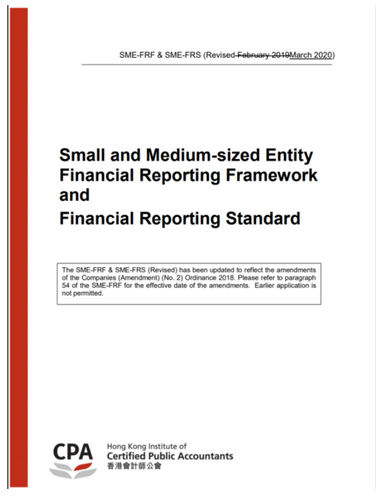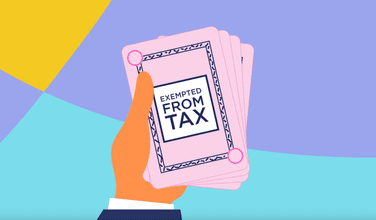What New Founders in Hong Kong Need To Know About Annual Financial Reporting Obligations
Companies must prepare financial statements and have them audited every year, with those financial statements being included with their annual tax filing. Find out more.

Finally, you have taken the first step in registering your company. As a founder you are also probably the director. Therefore you have a series of paperwork to file with the Inland Revenue Department or Companies Registry, one of which is preparing a financial report.
In this article, we will show you its importance and what you need to know about financial reporting.
Skip to:
What Are the Financial Reporting Obligations?Who Would Read My Company’s Financial Reports?
What Standards of Financial Reporting Would My Company Follow?
I Have To Prepare and Submit a Financial Report, What Should I Do?
What Happens if the Company Fails To Comply With Financial Reporting?
What are the Financial Reporting Obligations?
Financial reporting obligations refer to the preparation of accounts and reports that comply with Hong Kong’s financial regulatory framework. In general, companies are required by law to prepare annual financial statements and have them audited. Companies would also need to submit audited financial statements to the Inland Revenue Department as part of a company’s tax filing.
These reports would help you analyse and keep track of your company’s cash flow, check your company’s performance and financial health. As a director, you are required to read, approve and sign the accounts and reports before they are released to your stakeholders, investors and public.
Depending on your company’s size and annual revenue, you would prepare financial statements according to either one of these 3 reporting standards:
- Full Hong Kong Financial Reporting Standards (HKFRS) which is equivalent to the International Financial Reporting Standards
- HKFRS for Private Entities (equivalent to the IFRS for SMEs)
- Locally developed ‘Small and Medium Sized Entity Financial Reporting Framework and Financial Reporting Standard’ (SME-FRS)
Who Would Read My Company’s Financial Reports?
Financial statements may interest your present and potential investors, employees, lenders, suppliers and other trade creditors, customers, governments and their agencies and, in some cases, the public.
For SMEs incorporated in Hong Kong, financial reports would be read by owners, government (in the form of the Inland Revenue Department) and creditors (such as banks), who may have the power to obtain information additional to that contained in the financial statements.
What Standards of Financial Reporting Would My Company Follow?
Generally, companies follow the full HKFRS as mentioned above. However, some companies may prepare a simplified financial and directors’ report according to the ‘Small and Medium Sized Entity Financial Reporting Framework and Financial Reporting Standard’. In a simplified report, some information does not have to be included.
Of these exemptions, the most significant one for the purposes of the SME-FRS is the exemption from the requirement for the financial statements to give a true and fair view. Instead, they need to be properly prepared in accordance with the Small and Medium Sized Entity Financial Reporting Framework and Financial Reporting Standard.

As a starting point, private companies which do not have subsidiaries and are not a subsidiary of another company do not need to meet any size test. If your company is not of this type, you would have to follow the below size test. A company must meet 2 out of 3 criteria to be eligible to submit a simplified financial report.
| Criteria / Type of company | Small private company (or a group of small private companies which may include non-Hong Kong body corporates) | Larger "eligible" private (or a group of “eligible” companies which may include non-Hong Kong body corporates) | Small guarantee company (or a group of small guarantee companies which may include non-Hong Kong body corporates) |
| Annual revenue cannot exceed | HK $100 million | HK $200 million | HK$25 million |
| Total assets cannot exceed | HK $100 million at the end of the reporting period | HK$200 million at the end of the reporting period | - |
| The number of employees cannot exceed | 100 | 100 | - |
Mr Yung founded his IT start-up with his friends, David and Josh in 2015. Over the years, the company grew from a small IT start-up to a small and medium size company with 30 staff. The total revenue for the company in 2020 is HK$5million. As they are neither a public nor listed company, they could prepare the financial statements by applying SME-FRS.
Mrs Cheng owns a property and investment firm that has recently gone public at the end of the financial year in 2018 with an estimated revenue of HK$150million. As it is a public company, they will have to submit a full financial statement under HKFRS
Your company cannot be exempted if:
- It’s in the banking business and is authorised under the Banking Ordinance.
- Your company accepts loans at interest or repayable premium.
- Your company is licensed to carry on a regulated business (under Part V of the Securities and Futures Ordinance).
- Your company does any insurance business, other than a sole agent.
I Have To Prepare and Submit a Financial Report, What Should I Do?
Get these 3 documents ready
In compliance with the requirements of Hong Kong’s Companies Ordinance and Inland Revenue Department, you will need to prepare the following documents:
- Director’s Report
- Auditor’s Report
- Audited Financial Statements
What is a Director’s Report?
Yes. Directors will need to submit a report during each financial year. The contents of a directors’ report must consist of the following information:
- The name of the director of the company during the financial year or at the beginning with the end of the financial year and ending the date of the report
- The main activities in the course of the financial year
- The members’ appreciation of the state of the company’s affairs
- The disclosure that will not be harmful to the business of the company
A directors’ report will need to be approved by the directors and signed on the directors’ behalf by a director..
What is an Auditor’s Report?
It shows the detail of the CPA (Practising), how they audit the financial statements, comment on the financial statements prepared, and any qualified opinion / disclaimer on the accounts.
Usually, the Director’s report, auditor’s report, and audited financial statements will bind together in a book, commonly called as an Audit Report.
Prepare these books and records
Under the Inland Revenue Ordinance (Section 51C), the government requires companies in Hong Kong to keep proper books and accounting records of all business transactions conducted.
A proper account record must be sufficient to show and explain a company's transaction. These records can be printed in English or in Chinese. Maintaining detailed books and records of all business transactions helps you to manage your financial planning.
So what exactly books and records should you keep? Here is a list of documents to keep for business records:
- Vouchers, invoices, receipts and bank statements
- Records of assets and liabilities of a person related to the trade, profession or business
- Records of services provided related to the trade, profession or business
Accounting books should be kept for 7 years after the end of the financial year. The period can also begin from the last entry you made in your company’s accounting records.
Make sure your financial statements are prepared according to the correct reporting standards
Companies in Hong Kong are required to comply with the Hong Kong Reporting Standards (HKFRS) during financial reporting. This accounting standard is based on ‘The Framework for the Preparation and Presentation of Financial Statements’, which explains the concepts and the various information presented in the financial statement.
In March 2020, the Hong Kong Institute of Certified Public Accountants (HKICPA) issued a revised SME Financial Reporting Framework (SME-FRF) and Financial Reporting Standard (SME-FRS). These are the standards of accounting practices for SMEs that qualify for reporting under the SME-FRF.
You can prepare your financial statements in compliance with the Small and Medium-Size Entity Financial Reporting Standard and Financial Reporting Framework issued by Hong Kong Institute of Certified Public Accountants (HKICPA).
What happens if the company fails to comply with financial reporting?
Unfortunately, failure to comply with financial reporting will result in heavy penalties, and even imprisonment.
Likewise, if a director fails to comply with preparing a financial statement, he or she will be liable for a fine of HK $300,000 and to imprisonment for 12 months.
Conclusion
Complying with financial reporting obligations plays a crucial part in the running of your business. It gives you an idea of your company’s performance and builds credibility when you present your financial statements. There is a lot of paperwork involved in preparing these statements and reports at the end of the financial year.
We know reporting can be confusing and stressful during the filing period. You can always seek advice from our experienced accountants in Hong Kong as they can advise you about the financial regulations.







